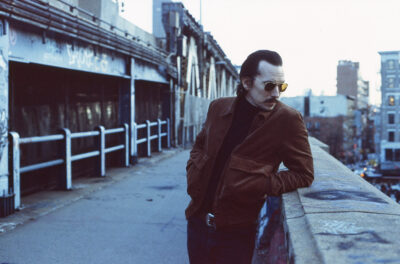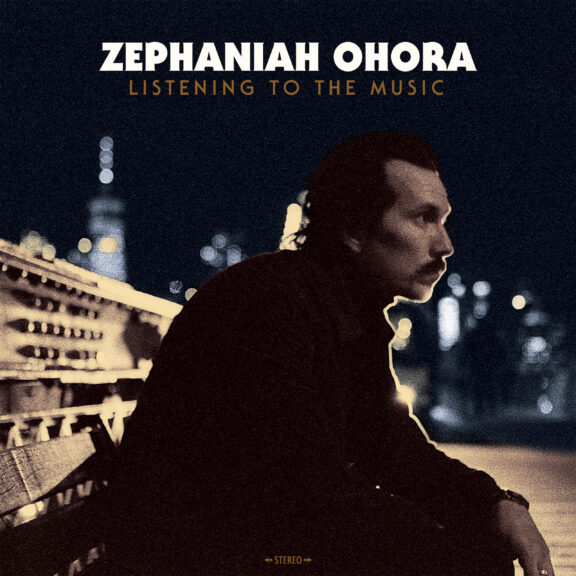Stacie Hestand – Raised Rowdy Contributor

For New Hampshire native and current Brooklyn, New York resident Zephaniah OHora, geography places no restrictions on making authentic country music: “People think you have to be from Texas or Nashville to play this music…but that’s not the way I see it. Country’s all about being true to yourself and telling honest, authentic stories. You can do that anywhere.” His sophomore album, Listening to the Music, proves that to be true; while a traditionalist vein runs through its core, the album explores themes that are pulled from modern, yet timeless experiences.
From the very first notes of the opening track “Heaven’s On The Way”, it’s evident that Listening to the Music has all the hallmarks of a bygone era in country music. OHora’s warm, expansive vocals wrap themselves around mesmerizing steel guitar and a rambling, open-road tempo that pops up in songs throughout the album. “Riding the Train”, “Living Too Long”, and “Time Won’t Take Its Time” tackle a breadth of human experiences – the whirlwind of years passing by, hitting dead ends in life, and city living – each with a jaunty spin that almost pokes fun at misfortune and misery (as many of the best country songs do). The title track “Listening to the Music” perhaps sums this up best: “and in my moments of despair, I find something there, listening to the music once again”.
Relationships, and all the highs and lows that accompany them, find a substantial focus over the course of the album’s twelve tracks as well. That being said, the reality with which OHora depicts relationships is refreshing – cheesy, overly romantic clichés have no place on Listening to the Music. In “Black and Blue”, for example, OHora sings of the trials that accompany a relationship where your partner is maddeningly similar to yourself. “You Make It Easy To Love Again” mirrors the loose, easy feeling that comes with finding that person who simply fits. In tracks like “When I’ve No More Tears To Cry” OHora explores the converse elements of living and loving with equal facility: “I don’t dream about you like I used to/but still I wake up reaching for your hand”.
Even in songs that lean towards a forlorn perspective, consistently well-placed guitar licks energize the tracks, as do fiddle, steel, drums, and the occasional harmonica in their respective roles. The backing band included John Shannon (electric guitar, acoustic guitars), Jon Graboff (pedal steel guitar, resonator guitar), Roy Williams (piano, wurlitzer), Jeff Hill (electric bass, upright bass), Arthur Vint (drums, congas, percussion), and Neal Casal (rhythm electric guitar, acoustic guitar, backing vocals, production). The album’s balanced production stands as a tribute to Casal, who unfortunately passed away just months after its completion. “My hope is that this recording shines a light on the unique gift Neal had,” says OHora. “Whether he was on stage in front of thousands or in a small recording studio with friends, Neal connected with people through music in a profound and lasting way. His legacy serves as a reminder of just how precious a commodity music is for humankind. I’m thankful I got to experience the growth that comes with working with someone who embodied that.”
All in all, the album’s sauntering pace, traditional country instrumentation, and lyrical depth truly do serve to capture universal human moments, with each song standing as a richly-developed cross-section of existence. “I’ve always seen music as a tool for uniting people,” OHora explains. “A good song can bring people together, no matter what ideology they’ve adopted. It can serve as a source of solace or a tool for self-reflection. It can remind us what we all share in common.”
Make sure to keep up with Zephaniah OHora on his website, Facebook, and Instagram. You can also buy the album here.

